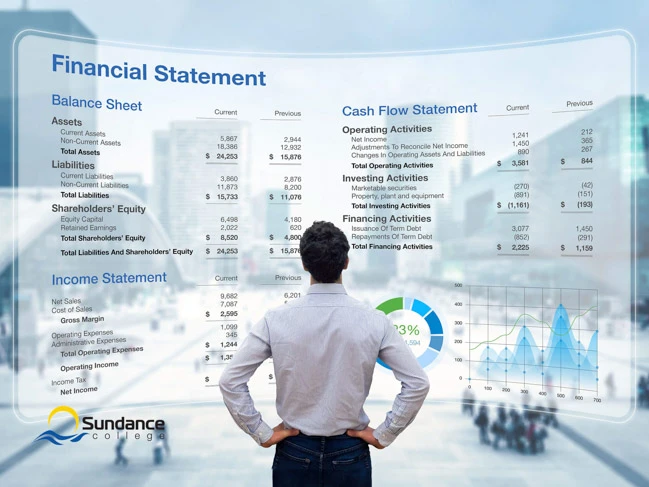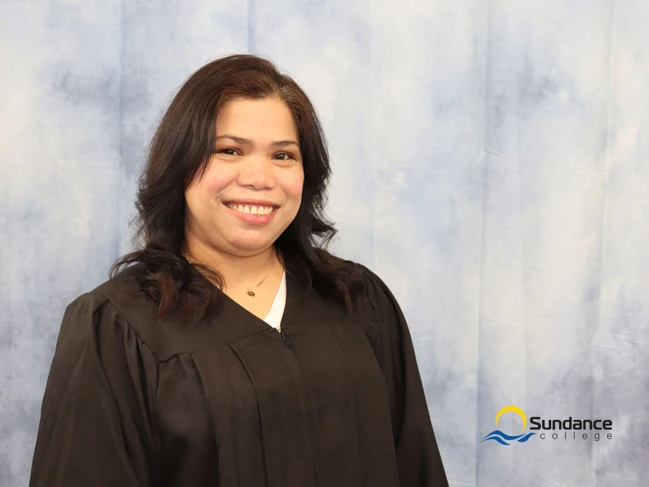Blog / What Can You Do With An Accounting, Tax, & Payroll Diploma?
What Can You Do With An Accounting, Tax, & Payroll Diploma?

Accounting, Tax, and Payroll Diploma
- Accounting Assistant/Technician
- Bookkeeper
- Income Tax Return Preparer
- Payroll Administrator
Table of Contents
Many dream of a career in the business world, dressed up in suits and other business wear. If you picture yourself in this type of dress, in an office workspace, you might wonder what kind of education and skills you’ll need to belong; skills and knowledge are the first step to joining this world.
One option that can open many glass doors is an accounting, tax, and payroll diploma. This diploma covers skills and knowledge that cover the essential aspects of accounting, tax preparation, and payroll administration.
You can prepare for a variety of roles and opportunities in different industries In this article, we will explore what you can do with an accounting, tax, and payroll diploma and why tax preparation bookkeeping, payroll administration, and accounting-related clerical roles could be your way into the business world.
Understanding Accounting Diplomas

An accounting, tax, and payroll diploma is a one-year business diploma with finance-specific courses
that teach you the fundamental knowledge and skills required to perform accounting, tax, or payroll duties in various settings. The program consists of courses that cover topics such as:
- Accounting principles and practices
- Tax preparation and tax filing
- Payroll processing and reporting
- Bookkeeping and financial statements
- Software applications and tools
- Communication and problem-solving skills
Benefits Of An Accounting, Tax, & Payroll Diploma
This type of program covers key courses with broad applications that can lead to a number of accounting and bookkeeping related careers as well as careers in payroll and tax preparation. It also includes a practicum, where you can apply what you have learned in real-world scenarios and gain valuable work experience.
A diploma program has several benefits over other accounting programs, such as:
Flexibility: You can choose to study for an accounting diploma online or on-campus, depending on your preference and availability. You can study at your own pace and schedule online, as long as you meet the deadlines and requirements.
Affordability: The tuition fee for a diploma program is much lower than other accounting programs, such as a degree. You can also save money on transportation, accommodation, and other expenses if you study online.
Practicality: A diploma program focuses on the skills and competencies that employers are looking for in accounting, tax preparers, and payroll professionals. Learn how to use industry-standard software and tools and how to comply with relevant laws and financial regulations. You will also gain hands-on experience and networking opportunities through the practicum.
Accounting, Tax, & Payroll Diploma: Key Skills Learned
By completing a practicum and earning the right accounting, tax, and payroll diploma , you can acquire a set of key skills and competencies that will enable you to perform various tasks and responsibilities in a multitude of industries.
Accounting & Bookkeeping
In an accounting diploma, students learn how to record, classify, summarize, and analyze financial transactions and events, and how to prepare and interpret financial statements and reports. Graduates are able to apply accounting standards and principles and use accounting software and tools.
The key skills you learn are valuable to employers and can earn you a place in an accounting firm, tax or financial services company or an organization’s accounting department.
Tax Preparation
With some diplomas, you’ll also learn how to prepare and file tax returns and forms for individuals and businesses, and how to calculate and remit taxes and deductions. You gain the skills and background knowledge needed to comply with tax laws and regulations and how to use tax software and tools.
Payroll Administration
Through payroll-focused courses, students learn how to process and report payroll transactions and activities, and how to calculate and remit payroll taxes and automatic deductions. Graduates with payroll courses in their accounting diplomas know how to comply with payroll laws and regulations and how to use industry-standard payroll software and tools.
Using Technology In Accounting Careers
Technology can increase the efficiency and effectiveness of accounting processes and systems, such as spreadsheets and QuickBooks. These technologies can help accounting professionals to organize, manage, and present financial information more clearly, consistently, and comprehensively, and to perform complex and sophisticated accounting functions and operations more conveniently and reliably.
However, efficiency also requires accounting professionals to maintain and update their technologies and tools and to ensure their compatibility and compliance with the relevant standards and regulations.
Career Opportunities For Accounting Diploma Graduates

One of the advantages of having an accounting, tax, and payroll diploma is that you can pursue a variety of career opportunities in different settings and sectors. Whether you prefer to work in a small or large organization, in the public or private sector, or as an employee or a contractor, you can find a job that suits your interests and goals. Here are some of the options that may be available to you.
Accounting Clerk
An accounting clerk is a broad term, and there are areas you can work in that are dedicated to specific functions in the accounting cycle. After graduating from an accounting diploma and becoming an accounting clerk, you might be responsible for performing routine accounting tasks, such as recording transactions, reconciling accounts, preparing invoices, and processing payments; you might focus on a niche area like receivables or payables.
An accounting clerk can be a great asset in preparing financial statements and reports and assisting with audits or tax filings. The job outlook for the next 10 years in this occupation is looking good, especially in the following provinces:
- Alberta
- New Brunswick
- Quebec
- Nova Scotia
Accounts Receivable Clerk
An Accounts Receivable Clerk is responsible for collecting payments from customers, issuing invoices, recording transactions, and maintaining records of accounts receivable. An accounts receivable clerk also communicates with customers and resolves any issues or disputes related to payments.
An accounts receivable clerk typically works in the accounting department of a company or organization and reports to an accounts receivable manager or supervisor. An accounts receivable clerk usually requires a high school diploma or equivalent and some accounting or bookkeeping experience. Some employers may prefer candidates with a diploma in accounting or a related field!
Accounts Payable Clerk
An Accounts Payable Clerk is in charge of processing payments to vendors, suppliers, and other creditors, verifying invoices, matching purchase orders, and updating records of accounts payable. An accounts payable clerk also communicates with vendors and resolves any issues or discrepancies related to payments.
An accounts payable clerk usually works in the accounting department of a company or organization and reports to an accounts payable manager or supervisor.
Billing Clerk
A Billing Clerk is a career option for accounting diploma graduates who are interested in working in the finance department of a company or organization. Billing Clerks concern themselves with invoices, credit memos, and updating customer information or accounting records — so an organization can keep revenues flowing.
A billing clerk also communicates with customers and resolves any issues or disputes related to invoicing. Someone in this role can work in various industries, such as manufacturing, retail, health care, and education — and may advance to higher positions with more responsibilities and authority, such as a billing manager, billing supervisor, or billing analyst.
Bookkeeper
This type of program covers key courses with broad applications that can lead to a number of accounting and bookkeeping related careers as well as careers in payroll and tax preparation. It also includes a practicum, where you can apply what you have learned in real-world scenarios and gain valuable work experience.
A diploma program has several benefits over other accounting programs, such as:
Tax Preparer
There’s lots of opportunity every spring to help people and businesses with their taxes. A Tax Preparer takes on the responsibility of and filing tax returns and forms for individuals and businesses — ensuring compliance with tax laws and regulations.
Of course, there is work year-round for those tax preparers who want it: preparing quarterly tax filings for businesses and dealing with tax issues that arise outside the regular season, for example.
A Tax Preparer may also work with those qualified to give tax advice, like tax accountants or tax lawyers. The job outlook for the next 10 years in this occupation is also good, especially in the following provinces and Territories:
- Alberta
- New Brunswick
- Quebec
- Yukon Territory
Payroll Administrator
A payroll administrator is responsible for processing and reporting payroll transactions and activities and ensuring compliance with payroll laws and regulations. A payroll administrator may also calculate and remit payroll taxes and deductions and administer benefits and pensions. Payroll clerks enjoy good job prospects for the next 10 years, and very good prospects in Alberta!
Accounting Diploma Graduates’ Choices Of Industry And Sector

The roles you can get with an accounting diploma are not limited to 1 type of business or industry! You can search for the environment where you’ll perform accounting-related duties almost as variably as your day-to-day duties. But there are a few areas accounting diploma graduates gravitate to.
Public Accounting
Working in a public accounting firm offers exposure to a variety of clients and industries, where accounting clerks and technicians report to designated accountants — making it a great learning experience.
Private Accounting
Private accounting roles involve managing the finances of a single company, providing stability and in-depth industry knowledge. Accounting diploma graduates tend to gravitate to these areas due to more numerous open positions.
Government And Non-Profit
These sectors offer unique challenges and the satisfaction of contributing to public service or social causes. You can choose this area if you want a government job or a chance to work for a cause near and dear to your heart.
Entrepreneurial Opportunities In Accounting
With a solid foundation in accounting, tax, and payroll, starting your own firm or consultancy is a viable and rewarding option.
Consulting And Freelancing
Freelancing or consulting allows for flexibility and the opportunity to work with a variety of clients.
Remote Work Prospects
Advancements in technology have made remote work increasingly feasible in this field, offering a great work-life balance for companies with a remote-work or hybrid culture.
Achieving Work-Life Balance In Your Career After Finishing Your Accounting, Tax, & Payroll Diploma

Work-life balance is an important issue for accounting assistants, as it can affect their well-being, productivity, and work ethic.
Achieving work-life balance can be challenging, especially in the accounting field, where long hours, tight deadlines, and high-pressure situations can sometimes happen. But you can always fall back on your accounting diploma’s skills and knowledge to perform under pressure! Great accounting diploma instructors like Roger Hardie, with Sundance College, are there to help you master the fundamentals.
Roger has expertise not only in the technical aspects of accounting that graduates can use daily in their careers, but also on bigger picture success formulas for people juggling multiple priorities in life.
Roger’s success formula involves going through lectures, doing textbook problems together as a class, assigning practice problems, and wrapping it all up with student-instructor facetime — 1-on-1s where Roger can help students better grasp concepts. With this process, he saves students time and headaches grappling with difficult concepts unsupported.
Some of the more successful students he teaches manage their time well, build great study habits, engage with their study materials consistently, and lean on his help with our reliable course materials.
Accounting Graduates’ Success Stories
Success stories of accounting diploma graduates are common among Sundance College’s Commerce: Accounting, Tax, & Payroll graduates. Mary Ann, a recent graduate overcame great difficulty in juggling several jobs that didn’t pay very well, earning her diploma and keeping up with her family commitments throughout ! She was offered a position at Canada’s largest audit firm and starting earning a much better wage! She plans to continue her accounting career.
Enroll In Sundance College’s Commerce: Accounting, Tax & Payroll Diploma To Start Your Career Off Right

An Accounting, Tax, & Payroll Diploma is more than just a credential; it’s a gateway to a world of opportunities. Whether you’re aiming for a corporate role, seeking a niche or general accounting-related position, or seeking global experiences, this diploma equips you with the skills and knowledge to achieve your goals. Embrace the journey and choose the right accounting, tax, and payroll diploma.
Simolette, a graduate of Sundance College’s accounting diploma had this to say about her experience, citing instructors and staff:
“I just recently completed a diploma in Accounting with Sundance College. The teachers and staff especially Roger Hardie and Ricky Catallo were very helpful in many different ways. Thank you Sundance College!!!!”
There are diverse roles available to Sundance College’s Commerce: Accounting, Tax, & Payroll Diploma graduates. Sundance College’s education balances academic and practical learning experiences by including a workplace practicum experience for students to apply what they’ve learned and gain confidence as they prepare for their new career.
Choosing Sundance College also comes with the assurance of a high graduate employment rate. Overall, 92% of Sundance College find employment in a related field after graduating!
Connect with an admissions advisor, enroll today, and join their ranks!
FAQs
What Is The Average Starting Salary For Someone With An Accounting, Tax, & Payroll Diploma?
The average starting salary varies by location and role but generally ranges from moderate to competitive levels for entry-level positions.
Can I Pursue A CPA Certification With This Diploma?
Yes, this diploma provides a solid foundation for pursuing a certified public accountant (CPA) designation, though additional requirements may apply. In particular, CPA candidates require a degree, and what students learn in an accounting diploma appears in the common final exam (CFE) of the CPA.
Is It Possible To Specialize In Both Tax And Payroll With This Diploma?
Absolutely, many professionals are called upon to perform in multiple areas of accounting, including payroll and tax preparation, enhancing their versatility and employability.
What Are The Prospects For Remote Work In This Field?
The accounting field can be adapted to remote work, offering flexibility and opportunities for those who prefer this mode of working. Traditionally, accounting clerks have been essential parts of the office, so you may find it depends on the company hiring you.
Related Blogs
Subscribe for more career advice
Blog Categories
Share on:
